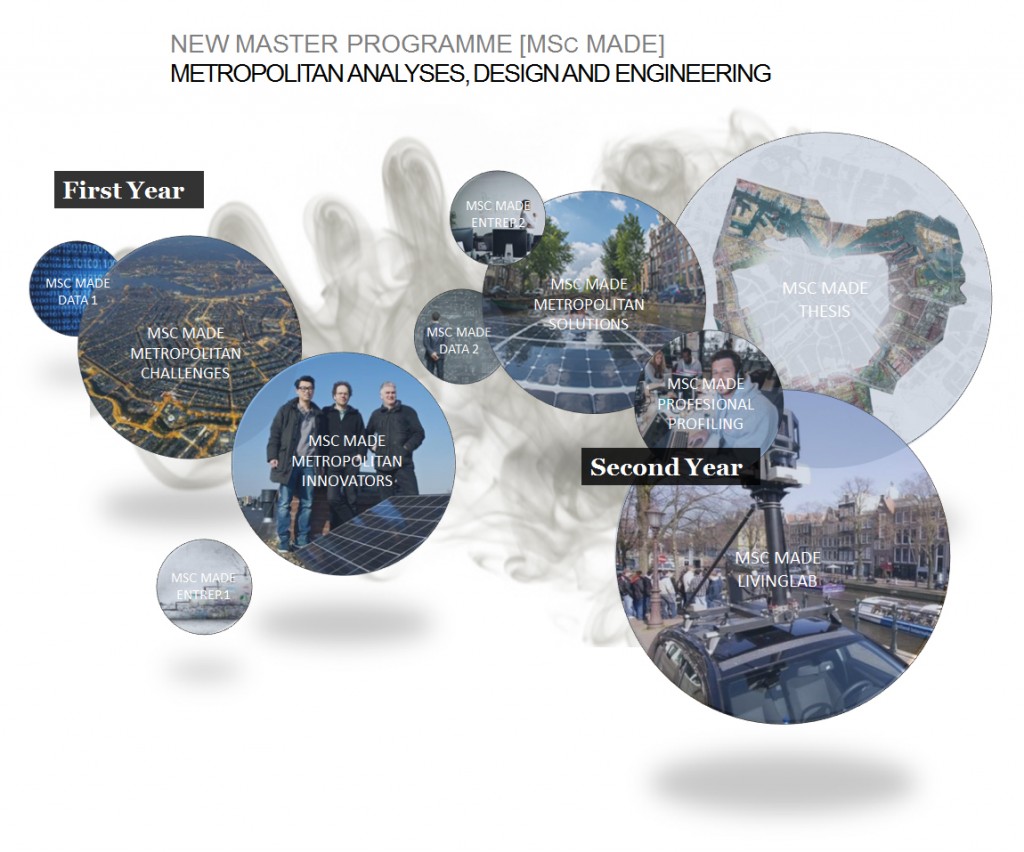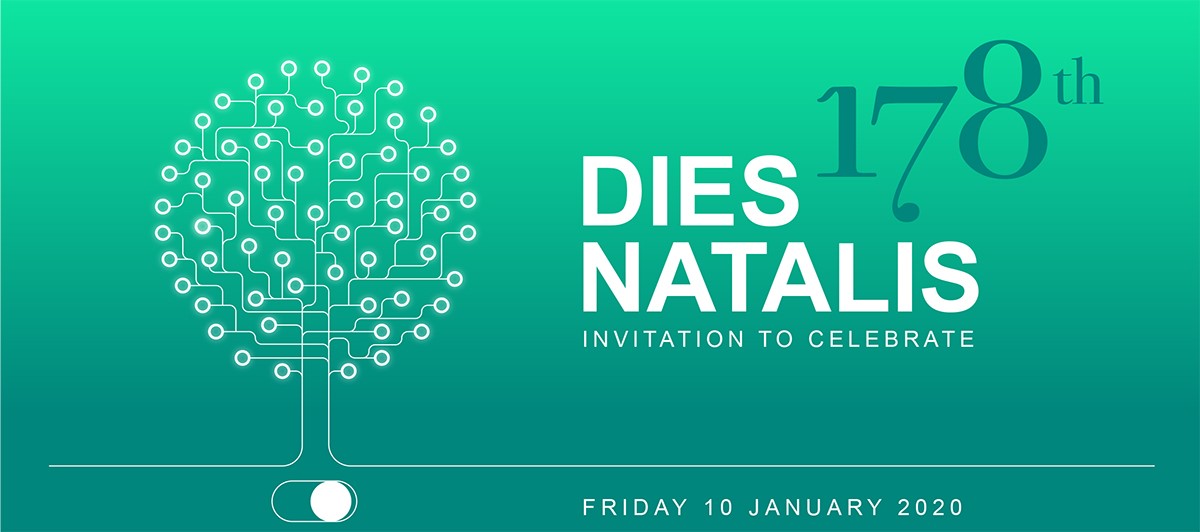As the majority of the world population is living in cities today, urban environments have become a place for many people. We are obliged to aim at sustainability and safeguard people’s quality of life, and human wellbeing. These challenges are motivating science and society to approach metropolises differently. Advanced metropolitan solutions to overcome problems are being made possible by today’s revolution of new technologies, theories and methods. But no actor or stakeholder can make metropoles move in one certain direction. Metropolitan solutions require cooperation between knowledge institutes, companies, governments, between cities, citizens and civil society.
The new MSc programme Metropolitan Analysis, Design and Engineering (MADE) integrates analysis, design and engineering in the sphere of the flows in the city; the physical, digital and social environments; and the city and its citizens. As full master programme, the MSc MADE prepares students to be specialised on one hand and an integrator on the other. A MADE graduate will be able to create synergy between specialists from other disciplinary backgrounds. You can make a cross-over too!

The new trans- and interdisciplinary programme will be offered as a joint degree programme by Delft University of Technology and Wageningen University. It is built on their joint research activities, and consolidated in their participation together with the Massachusetts Institute of Technology (MIT) in the Amsterdam Institute for Advanced Metropolitan Solutions (AMS).
Continue reading →
 On the occasion of its Dies Natalis celebration, the Delft University of Technology together with the Delft Design for Values Institute has organised a symposium on Design for Values.
On the occasion of its Dies Natalis celebration, the Delft University of Technology together with the Delft Design for Values Institute has organised a symposium on Design for Values.
